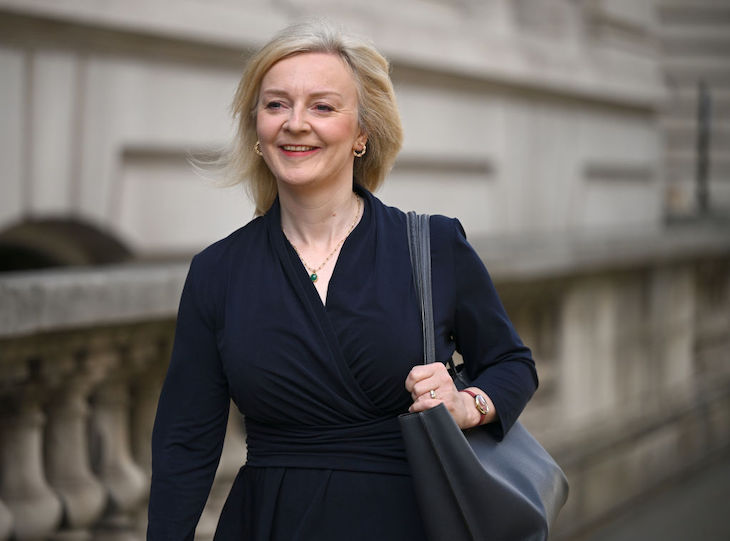Liz Truss will take to the stage this morning for her first major intervention on the economy since leaving No. 10 last year. A year on from the mini-budget which saw the markets panic – and her premiership come to an abrupt end not long after – Truss will use her speech at the Institute for Government to argue that her original diagnosis was the right one: that the status quo cannot remain. The former prime minister will point to the fact there is agreement across the political divide that the lack of economic growth is a problem.
Truss will lay the cause of the problem on ’25 years of economic consensus’ that have turned the UK from a free market capitalist economy into more of a ‘corporatist social democracy’ in which state spending accounts for 46 per cent of GDP. She will say:
‘The fact is that since the Labour government was elected in 1997, we have moved towards being a more corporatist social democracy in Britain than we were in the 1980s and 1990s’.
While Truss is not expected to individually name any Tory colleagues, decisions made by David Cameron and George Osborne will be referenced. There’s also likely to be a thinly veiled jibe at Rishi Sunak – with Truss claiming he has spent £35 billion more than she would have as prime minister. It comes after Truss has taken umbrage with the narrative that she was as much a high spend Tory (through her energy pledge) than she was low tax.
Tory MP Danny Kruger said Truss had made mistakes but he was still sympathetic to her diagnosis
In a sign that Truss still believes she was let down by some in her own party as well as various outside institutions, she will say the reasons her policies did not get implemented were down to ‘a reaction from the political and economic establishment which fed into the markets’:
‘I was effectively forced into a policy reversal under the threat of a UK meltdown’.
Truss is expected to return to her conference theme of the anti-growth coalition:
‘The anti-growth coalition is now a powerful force comprising the economic and political elite, corporatists, parts of the media and even a section of the Conservative parliamentary party. The policies I advocate simply aren’t fashionable on the London dinner party circuit.’
So, what is the reason behind the speech? Truss and her supporters were well aware that, as the one year mark passes on her mini-budget and various other key moments in her premiership, there would be vast commentary. It follows that she has wanted to get ahead and have her say.
As for her audience, it’s very unlikely No. 10 will pay much attention at all to Truss’s words, such as her call for ministers to set out a ten-year trajectory for reducing the size of the state as a proportion of our economy.
But convincing Jeremy Hunt on measures to put in the autumn statement is not her game. Instead, Truss could wield the most influence in the debate that will follow in the event of a Tory defeat in the general election.
In a sign, Truss’s focus is a Tory facing audience, she will attend party conference next month with plans for one intervention at a fringe event. Some of her Tory colleagues already seem receptive to what she might have to say. Speaking on Westminster Hour last night, Tory MP Danny Kruger said Truss had made mistakes but he was still sympathetic to her diagnosis. It is in a future battle of ideas that Truss’s call for the party to be more bold could have the most receptive audience.







Comments